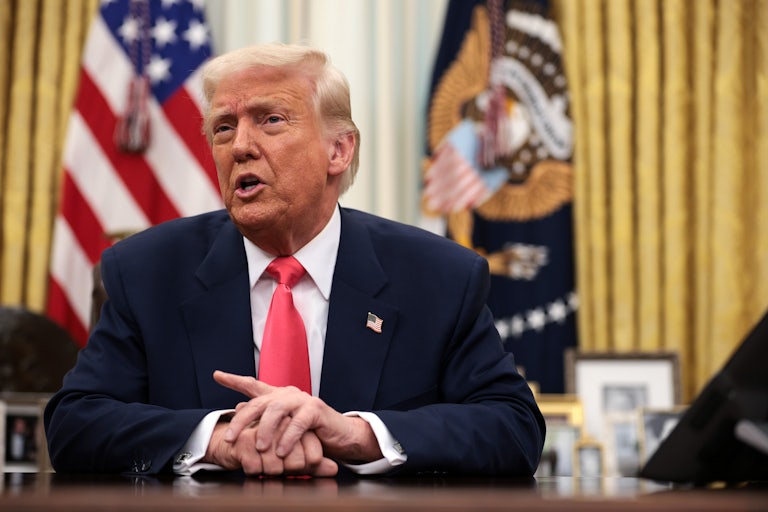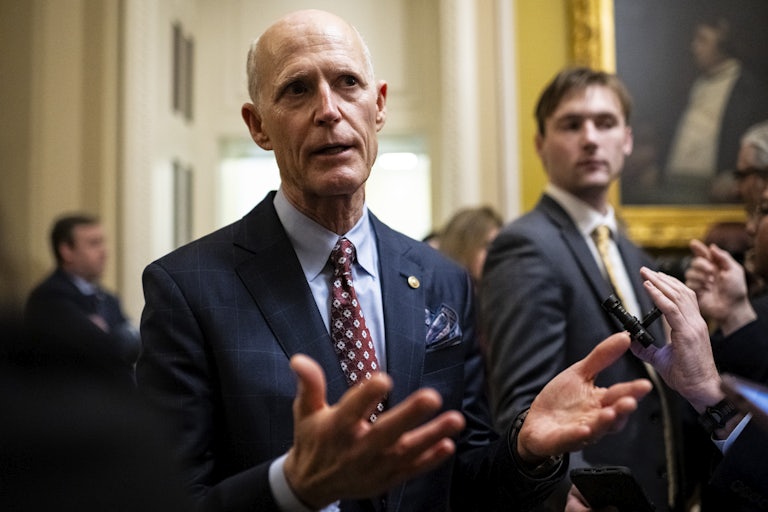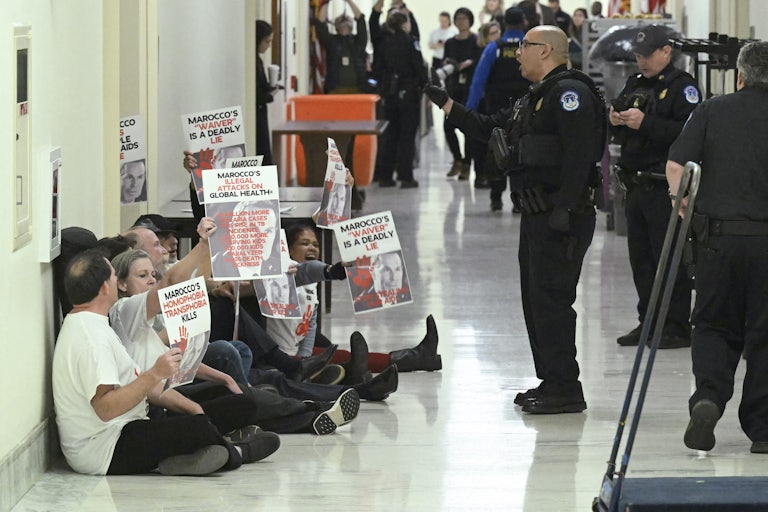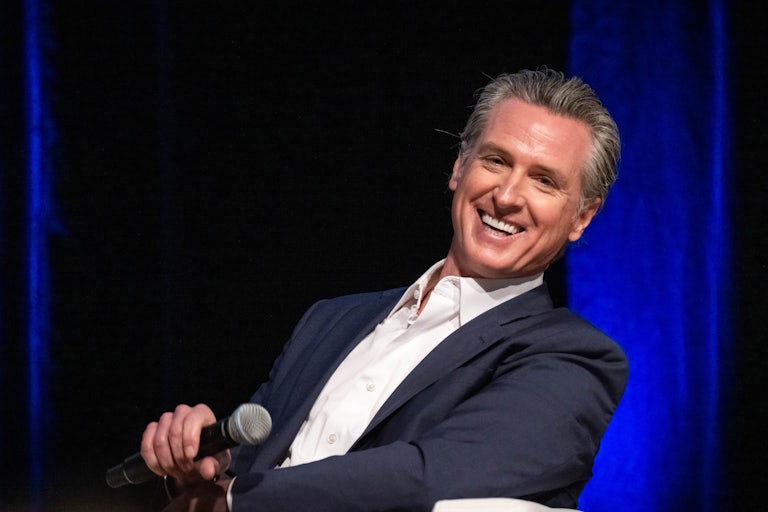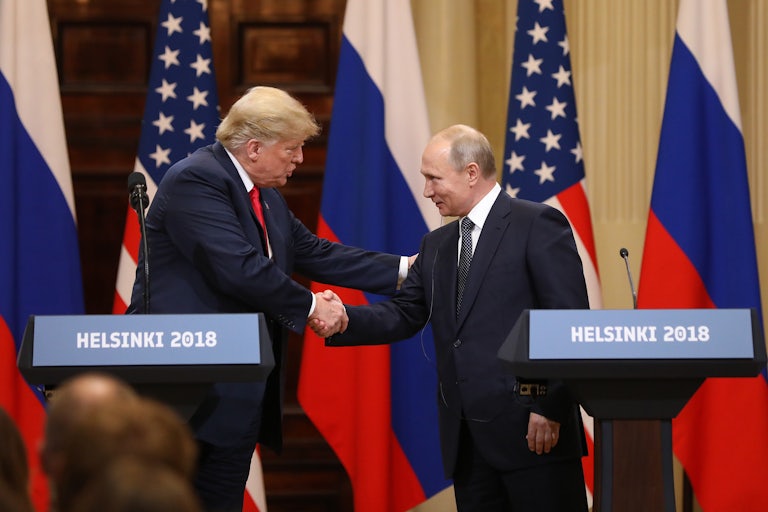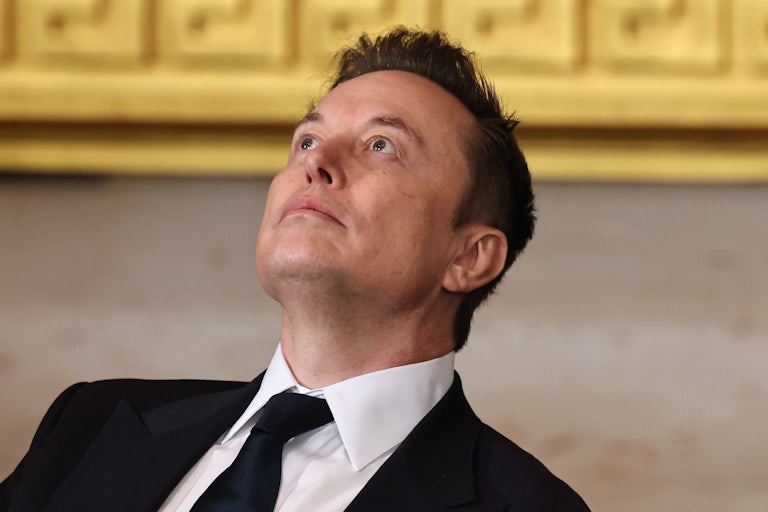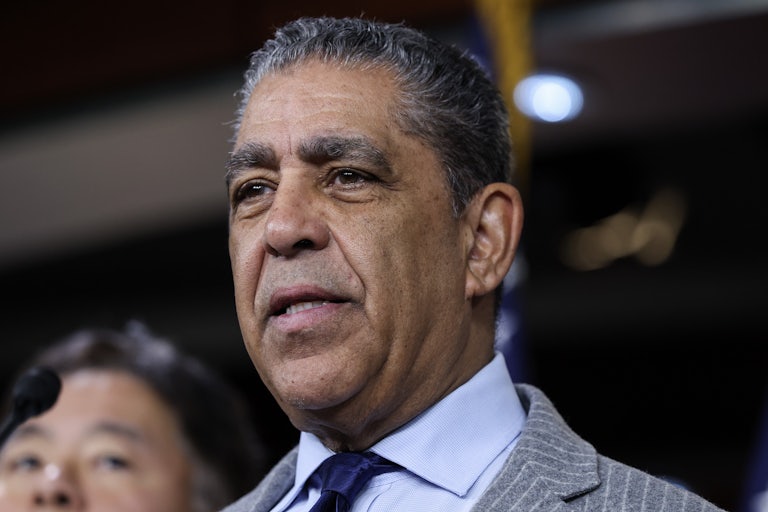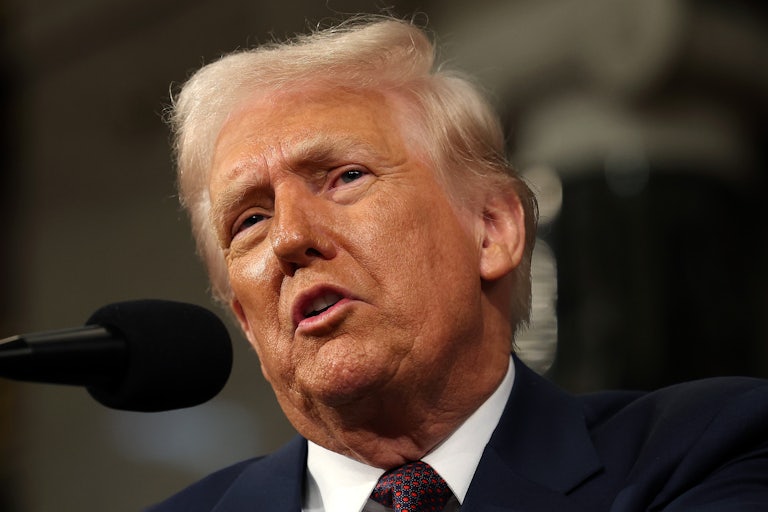Federal Judge Slaps Down Trump, Says U.S. Constitution Has No Kings
A court has just dealt a major blow to legal Trump’s attempted takeover of the NLRB.
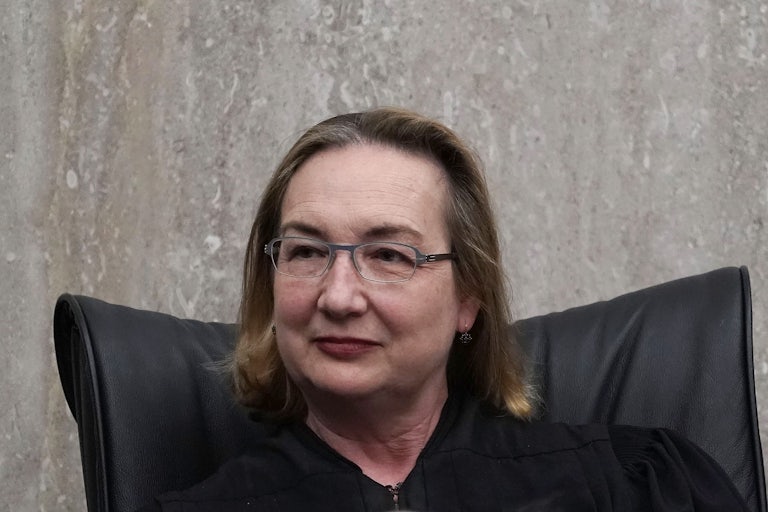
Donald Trump’s attempt to take over the National Labor Relations Board hit a snag from a federal judge Thursday.
Trump’s firing of Democratic board member Gwynne A. Wilcox was ruled unlawful by U.S. District Court Judge Beryl A. Howell, who ordered Wilcox’s immediate reinstatement and for her to serve out the remainder of her five-year term on the board, which began on September 6, 2023.
In her ruling, Howell wrote that the Constitution “made clear that no one in our system of government was meant to be king—the President included—and not just in name only.
“The President does not have the authority to terminate members of the National Labor Relations Board at will, and his attempt to fire plaintiff from her position on the Board was a blatant violation of the law,” Howell said.
“A president who touts an image of himself as a ‘king’ or a ‘dictator,’ perhaps as his vision of effective leadership, fundamentally misapprehends the role under Article II of the U.S. Constitution,” Howell added.
Wilcox filed the lawsuit last month after Trump fired her and the board’s general counsel, Jennifer Abruzzo, a fellow Biden appointee, leaving the board unable to function without a quorum. In a speech after the hearing Thursday, Wilcox said, “I’m ready to get back to work.”
“It’s not just about me, but I’m glad to be the face of this fight,” Wilcox said.
Trump, Elon Musk, and the rest of the right have long targeted the NLRB, and are in fact trying to get the Supreme Court to declare it unconstitutional and dismantle it with backing from corporations including Amazon, Starbucks, and Trader Joe’s. For now, at least, the NLRB is still around, with long legal fights ahead to save it as well as Wilcox’s position.
